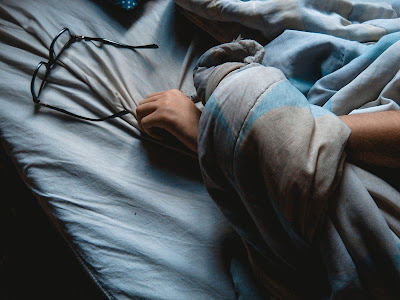Five Tips to Help You Sleep

Having Trouble Sleeping? Here Are Some Tips
It’s important to get enough sleep. However, a lot of us don’t get the sleep we need. Not sleeping enough can leave you feeling tired and sluggish during the day. It can also make it more difficult to concentrate, be productive, and exercise as much as you should. If you’re having difficulty sleeping, here are a few things you can do that may help.
Have a Schedule
Sticking to the same schedule every day can make it easier to fall asleep. This means going to bed and waking up at the same time each day (yes, even on the weekend!) When you have a regular schedule, your body gets used to sleeping at certain times, which makes it easier to fall asleep at night.
Follow a Bedtime Routine
Much like sticking to a regular schedule helps your body get used to sleeping, having the same routine each night can improve your sleep as well. Come up with a relaxing routine that you can do every day in the time before bed. Take a relaxing bath, listen to some calming music, do some deep breathing exercises, read a book, or do whatever makes you feel relaxed. This will make sleeping easier.
Avoid Screens
Looking at TV, computer, or smart phone screens before bed can make it more harder to fall asleep. Technology keeps your brain alert and active, which makes it difficult to relax and fall sleep. Plus, the blue light emitted by the many screens can suppress your body’s production of melatonin, which helps you sleep. Less melatonin often means less sleep. To make it easier to fall asleep, try avoiding screens for at least 30 minutes before bedtime.
Trick Yourself
One of the most difficult parts of struggling to sleep is the anxiety it causes. When you’re in bed and having trouble sleeping, your mind starts racing. You start thinking about the time, how busy you’re going to be tomorrow, how much sleep you’re missing, etc. This makes you anxious and upset, which makes it even harder to sleep.
One way to get around this is to trick yourself. First, hide the clock so you can’t see the time. It just causes you stress. Then, try to stop thinking about falling asleep. One way to do this? Think about staying awake instead. Open your eyes and tell yourself that you need to stay awake. This little bit of reverse psychology might just help.
Stay Cool and Dark
Darkness helps your body recognize that it’s time for sleep, and a cool temperature can help your body as well. Studies show the the optimal temperature for sleep is between 16-20 degrees Celsius (60-67 degrees Fahrenheit).

No Comments